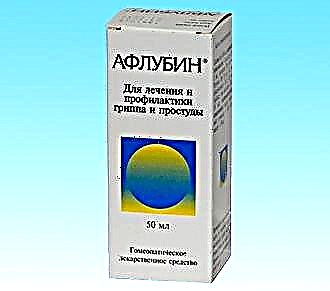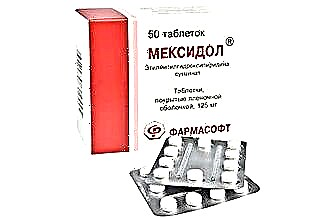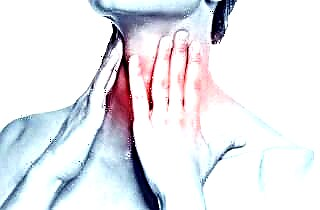 Among the reasons that provoke the development of laryngitis, the most frequent ones should be highlighted:
Among the reasons that provoke the development of laryngitis, the most frequent ones should be highlighted:
- general or local effect of low temperatures (freezing, inhalation of cold air or the use of cold drinks);
- chronic diseases of the ENT organs or respiratory organs;
- prolonged overstrain of the vocal cords, which is typical for the voice-speech professions (artists, vocalists, teachers);
- smoking;
- weakened immunity by severe infections and somatic diseases;
- prolonged abuse of alcoholic beverages;
- contact with an allergen (pollen, aromas of spices, perfumes, detergents);
- inhalation of air contaminated with dust, chemicals;
- harmful working conditions.
In most cases, in adults, the disease develops with a primary lesion of the mucous membrane by infectious pathogens. Under the influence of provoking factors (cold, dust), local protection decreases, which predisposes to infection.
Infection can occur with viruses (parainfluenza, adenoviruses, influenza) or bacteria (streptococci, staphylococci).
With the onset of the cold season, the number of acute laryngitis increases rapidly. The onset of the disease is characterized by slight malaise at normal temperatures. Gradually appears:
- dryness, soreness in the oropharynx;
- hoarseness up to aphonia;
- dry cough;
- headache;
- subfebrile condition;
- severe weakness.
Over time, a dry cough becomes moist in nature with the release of serous sputum. With bacterial inflammation, a purulent impurity in the sputum may be observed.
Laryngoscopy reveals incomplete closure of the gap by the head due to swelling of the folds, as well as hyperemia of the mucous membrane.
If laryngitis develops against the background of influenza, small hemorrhages may be visualized on the mucous membrane as a sign of vascular lesion.
Clinical symptoms in adults differ depending on the form of inflammation:
 atrophic - manifested by dryness, soreness in the oropharynx, a painful cough and a hoarse voice. Atrophic changes lead to thinning and dryness of the mucous membrane. Dry crusts appear on its surface, which can stand out when coughing. The appearance of blood streaks on the crusts indicates damage to the walls of small blood vessels;
atrophic - manifested by dryness, soreness in the oropharynx, a painful cough and a hoarse voice. Atrophic changes lead to thinning and dryness of the mucous membrane. Dry crusts appear on its surface, which can stand out when coughing. The appearance of blood streaks on the crusts indicates damage to the walls of small blood vessels;- hypertrophic - characterized by severe hoarseness and coughing. The hypertrophic type includes professional laryngitis, which is manifested by "singing nodules". Due to prolonged tension of the vocal cords, fibrous formations are formed at the site of chronic inflammation. The nodules are located symmetrically on the ligaments and can occupy their entire surface (with a diffuse form);
- catarrhal is the easiest. It is characterized by moderate hyperemia, swelling of the mucous membrane and the release of a small volume of mucus. In addition to perspiration and periodic hoarseness, a person may not be bothered by anything.
Separately, it should be said about diphtheria laryngitis, when fibrinous deposits spread from the throat to the larynx, narrowing its lumen. In adults, the danger of croup is less pronounced than in children who have a narrower larynx. Airway blockage can occur with a film that has come off, leading to shortness of breath, coughing, and respiratory failure.
Another type of infectious laryngitis is syphilitic. Inflammation of the laryngeal mucosa occurs as a complication of syphilis, which leads to the formation of ulcerative defects and plaques. When cicatricial changes appear, the larynx is deformed and irreversible hoarseness occurs.
In the case of tuberculous laryngitis, nodules appear in the larynx. In addition, the risk of destruction of the epiglottis and laryngeal cartilage increases.
Diagnostic methods
Symptoms and treatment are carefully analyzed by a doctor, which makes it possible to prevent complications. To make a diagnosis, the doctor:
- examines the data of the anamnesis of life, the features of the onset of symptoms and the speed of their progression;
- conducts a physical examination, during which he probes the lymph nodes and listens for pulmonary breathing;

- examines the throat;
- directs the patient to laryngoscopy, which is carried out using a flexible endoscope, which allows you to sightly examine the areas of interest of the mucous membrane. During the study, you can collect material for histological analysis;
- directs to laryngostroboscopy, thanks to which it is possible to assess the degree of vibration of the vocal cords.
Treatment activities
How is laryngitis treated? To get the maximum therapeutic effect from medications, the following recommendations must be followed:
- restriction of physical activity for a period of up to 5 days, and with an infectious form, strict bed rest is shown. It will allow you to restore the body's strength to resist the disease;
- voice peace;
- warm drink makes it possible to replenish fluid losses in the body and reduce the severity of fever. In addition, drinking plenty of fluids accelerates the elimination of toxic waste products of infectious pathogens. A sign of insufficient fluid intake - low daily urine output, not associated with somatic pathology;
- you should not eat spicy, salty, fried, fatty foods, drink carbonated drinks, as they irritate the throat mucosa;
- food and drinks should not be hot or cold;
- smoking is prohibited;
- drafts and hypothermia should be avoided;
- humidification of the air in the room and wet cleaning are required.
When acute laryngitis is diagnosed, symptoms may develop rapidly or gradually. It depends on the strength of the provoking factor and the stability of the immune system. In the treatment of inflammation of the larynx in adults, the following groups of drugs can be prescribed:
- antitussive drugs that reduce the severity of the cough reflex. Among such drugs, it is worth highlighting Codeine, Bronholitin, Tusuprex and Sinekod;
- expectorant and mucolytic medicines, the action of which is aimed at reducing the viscosity of secretions in the respiratory tract and facilitating the coughing up of sputum. This group of funds includes Acetylcysteine, Ambroxol, Mukaltin, licorice root, Bromhexine and Flavamed;
- antihistamines (Diazolin, Tsetrin, Loratadin) are used to reduce the swelling of the mucous membrane and the production of secretions. It is especially important to prescribe them for the allergic origin of laryngitis;
- hormonal means for inhalation (Pulmicort) are used for allergic form and the threat of laryngospasm. The action of the drug is aimed at reducing the severity of inflammation and secretion, which quickly facilitates breathing;
 antiviral agents - Aflubin, Amizon, Ingavirin, Remantadin and Lavomax. Their action is aimed at fighting viruses and maintaining the immune defense at a sufficient level;
antiviral agents - Aflubin, Amizon, Ingavirin, Remantadin and Lavomax. Their action is aimed at fighting viruses and maintaining the immune defense at a sufficient level;- antibacterial agents - Flemoklav, Clarithromycin and Cefuroxime are prescribed only after confirmation of a bacterial infection;
- local antibiotic and antifungal agent - Bioparox. It is prescribed for local exposure to infectious pathogens.After irrigating the mucous throat, you need to take a deep breath so that the particles of the medicine penetrate deeper into the respiratory tract.
In adults, for inhalation, you can also use Rotokan, alkaline still water, saline or Interferon. Rinsing can be carried out using antiseptic, anti-inflammatory drugs, for example, Rotokan, Furacilin or Givalex.
Drip injections into the larynx are carried out exclusively by a doctor. For the procedure, hormonal drugs (hydrocortisone) or antibacterial drugs can be used.
If acute laryngitis is properly treated, recovery can occur as early as 7-10 days.
In the presence of residual manifestations of the disease in the form of hoarseness, special exercises may be needed. They restore the motor ability of the vocal cords and prevent damage to them.
Traditional therapy
You can supplement drug treatment with folk remedies. Having diagnosed acute laryngitis, treatment should be agreed with the doctor, otherwise the risk of complications increases.
For rinsing and inhaling, you can use chamomile, calendula, yarrow, oak bark, or sage. You can also use essential oils (pine, eucalyptus).
It is recommended to drink plentifully due to compotes, jelly, tea with raspberries or honey, warm milk with mineral water or soda. Eggnog and bran is considered an excellent remedy for voice restoration.
The combination of medications and folk remedies gives a good result, but you should not stop treatment on your own. If you are treating at home, do not forget to visit the doctor's office regularly to assess the dynamics and effectiveness of medications.

 atrophic - manifested by dryness, soreness in the oropharynx, a painful cough and a hoarse voice. Atrophic changes lead to thinning and dryness of the mucous membrane. Dry crusts appear on its surface, which can stand out when coughing. The appearance of blood streaks on the crusts indicates damage to the walls of small blood vessels;
atrophic - manifested by dryness, soreness in the oropharynx, a painful cough and a hoarse voice. Atrophic changes lead to thinning and dryness of the mucous membrane. Dry crusts appear on its surface, which can stand out when coughing. The appearance of blood streaks on the crusts indicates damage to the walls of small blood vessels;
 antiviral agents - Aflubin, Amizon, Ingavirin, Remantadin and Lavomax. Their action is aimed at fighting viruses and maintaining the immune defense at a sufficient level;
antiviral agents - Aflubin, Amizon, Ingavirin, Remantadin and Lavomax. Their action is aimed at fighting viruses and maintaining the immune defense at a sufficient level;

